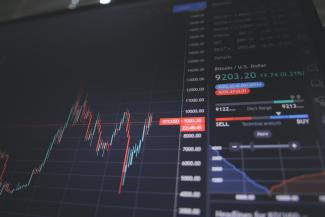
Market Update for August 10, 2022
Part of the benefit of writing consistent blog posts is one can look back and see the date where I wrote XYZ and compare it to the current situation. I am not endeavoring to predict the future, but there are past comments made that can be useful when placed in a current context. To wit, in the May 17, 2022 update I noted in the opening paragraph that:
“I have written a number of times about the S&P 500 wanting to hold the 4,070 level, and we have almost retained that level again- we are at 4,060 as I write this (11:25 AM 5/17/2022), with the market rebuffed at the open hitting 4,070 exactly. What was a “floor” becomes a bit of a “ceiling” if you break down below that key figure, and in the very short-run I believe that’s what we are seeing.”
What happened next was the S&P 500 broke that level - and decisively - falling down to 3,639.77 on June 16th - before rebounding substantially to the 4,201 level as I write this post (12:03 PM 8/10/2022). Thus, we have reclaimed that 4,070 level, having been patient for the few weeks spent below it. “Key levels” change over time, as the market ages and evolves, so it remains to be seen if 4,070 is still an interesting level to watch going forward. Let’s just say for now I am emboldened that the S&P 500 has moved above this previously interesting level.
We are now almost equidistant between the recent lows and the all-time (early January 2022) highs, again on the S&P 500. Growth stocks have recently outperformed Value stocks, a topic that I have visited many times already in these blog posts, and both large and small-cap stocks, as well as international and domestic stocks have been moving with a high degree of correlation. I am sure there will be fits and starts, but I am more confident than I was a month ago that we are unlikely to revisit the lows of mid-June. The Federal Reserve RAISING interest rates substantially has been met with sighs of relief compared with concerns that they WOULD raise. Inflation is showing signs of abating, and the stock market thinks there is a chance that the economy is not going to suffer much collateral damage despite the higher interest rates. Part of that optimism stems from recent earnings reports, which for the most part have been positive and do not corroborate weak GDP readings’ indication of a recession. Almost by definition we cannot have a meaningful recession with the job market as healthy as it remains, so things would have to get much worse for employment for true broad economic contraction. I remain resolute that unemployment should increase and inflation decrease, but if both of those events happen gradually the economy should be able to take the changes in stride.

